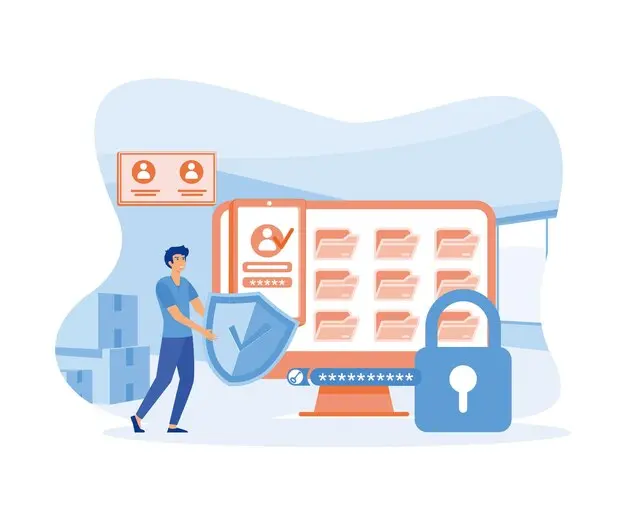
Introduction
Small businesses form the backbone of the economy, driving innovation, job creation, and community development. However, they often face unique challenges, including limited resources, competition from larger firms, and the need to adapt quickly to changing market conditions. To thrive in this environment, small businesses must leverage technology solutions that can streamline operations, enhance productivity, and improve customer engagement. In this article, we will explore some of the top software solutions that empower small businesses and pave the way for success.
1. Accounting Software
Financial management is crucial for any business, and small businesses are no exception. Accounting software simplifies bookkeeping, invoicing, and financial reporting, allowing business owners to focus on their core activities. Popular options like QuickBooks, Xero, and FreshBooks offer user-friendly interfaces and comprehensive features tailored to small business needs.
With these tools, businesses can manage expenses, track income, generate financial reports, and automate invoicing. The ability to access financial data in real-time helps small business owners make informed decisions and maintain a healthy cash flow.
2. Customer Relationship Management (CRM)
Building and maintaining strong customer relationships is vital for small businesses. CRM software helps manage interactions with customers and prospects, streamlining communication and improving customer service. Tools like HubSpot, Zoho CRM, and Salesforce Essentials provide small businesses with the ability to track leads, manage sales pipelines, and analyze customer data.
By utilizing a CRM system, small businesses can personalize their marketing efforts, automate follow-ups, and develop targeted campaigns that resonate with their audience. This, in turn, can lead to increased customer satisfaction and loyalty, ultimately driving growth and success.
3. Project Management Software
Effective project management is critical for meeting deadlines and ensuring productivity. Project management software like Trello, Asana, and Monday.com helps small businesses organize tasks, assign responsibilities, and monitor progress. These platforms provide a visual overview of projects, making it easy for teams to collaborate and stay on track.
By adopting project management software, small businesses can streamline workflows, set priorities, and allocate resources efficiently. This leads to improved communication among team members and a greater likelihood of completing projects on time and within budget.
4. E-commerce Platforms
For small businesses looking to expand their market reach, an online presence is essential. E-commerce platforms like Shopify, WooCommerce, and BigCommerce enable small businesses to set up and manage online stores with ease. These solutions provide customizable templates, payment processing, and inventory management features, allowing businesses to focus on sales and customer service.
By embracing e-commerce, small businesses can tap into a global market, increase sales opportunities, and provide customers with a convenient shopping experience. Additionally, many e-commerce platforms offer integrations with other software solutions, such as CRM and accounting tools, creating a seamless workflow.
5. Marketing Automation Tools
Marketing is essential for attracting and retaining customers, but small businesses often struggle with limited marketing budgets and resources. Marketing automation tools like Mailchimp, Constant Contact, and Hootsuite allow businesses to streamline their marketing efforts and reach their audience more effectively.
These tools enable businesses to create and schedule email campaigns, manage social media accounts, and analyze marketing performance. By automating repetitive tasks, small businesses can save time, reduce errors, and focus on crafting compelling content that resonates with their target audience.
6. Human Resource Management (HRM) Software
Managing human resources can be challenging for small businesses, especially without dedicated HR staff. HRM software like Gusto, BambooHR, and Zenefits simplifies employee management, payroll processing, and benefits administration. These platforms ensure compliance with labor laws and streamline hiring processes, making it easier for small businesses to manage their workforce.
With HRM software, small businesses can automate onboarding, track employee performance, and manage time-off requests. This enhances employee satisfaction and engagement, leading to a more productive work environment.
7. Collaboration Tools
In an era where remote work and flexible schedules are increasingly common, collaboration tools are essential for small businesses. Platforms like Slack, Microsoft Teams, and Zoom facilitate communication and collaboration among team members, regardless of their location.
These tools enable real-time messaging, video conferencing, and file sharing, fostering a collaborative work culture. By using collaboration tools, small businesses can enhance teamwork, improve project efficiency, and maintain connections among employees, even when working remotely.
8. Inventory Management Software
For small businesses that deal with physical products, inventory management is crucial for maintaining optimal stock levels and reducing operational costs. Inventory management software like TradeGecko, Cin7, and Zoho Inventory helps businesses track stock levels, manage orders, and forecast demand.
By leveraging inventory management solutions, small businesses can avoid stockouts, reduce excess inventory, and streamline fulfillment processes. This leads to improved customer satisfaction and increased profitability.
9. Cybersecurity Solutions
As small businesses increasingly rely on technology, the risk of cyber threats also rises. Cybersecurity solutions like Norton, McAfee, and Bitdefender protect sensitive data and safeguard business operations from potential breaches. Small businesses must prioritize cybersecurity to mitigate risks and maintain customer trust.
Investing in cybersecurity software ensures that small businesses can secure their systems, protect customer information, and comply with data protection regulations. This not only safeguards the business but also enhances its reputation in the marketplace.
10. Conclusion
Empowering small businesses requires the right tools and strategies to streamline operations and enhance productivity. By leveraging software solutions tailored to their unique needs, small businesses can improve financial management, customer relationships, project management, and more. The key is to choose the right combination of tools that align with specific business goals and workflows.
As technology continues to evolve, small businesses must stay informed about the latest software solutions to remain competitive in their industries. By embracing these tools, small businesses can position themselves for success, drive growth, and ultimately thrive in an ever-changing marketplace.






